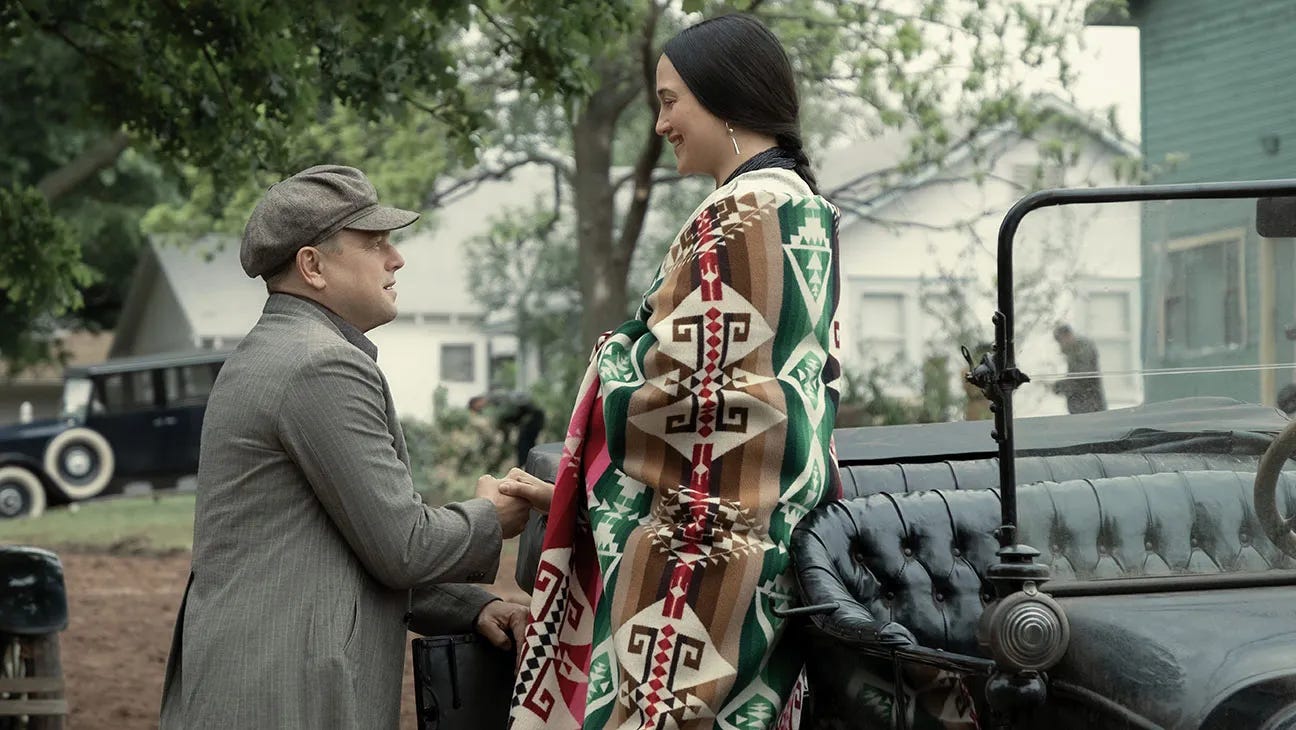Martin Scorcese's Tryst With A Dark Chapter of Human History
Some thoughts on Scorcese's latest movie 'Killers of the Flower Moon'
I have not thought much about Scorcese's work, though I have watched a few of his movies. I am quite aware that his films generally explore the dark side of the human psyche. But his latest movie, "Killers of the Flower Moon", hit me in the gut.
I could not gather the courage or emotional energy to watch it in one go. Somehow, my friend Tarunveer Singh managed to do it in one go. Maybe he had to down a few drinks to get through the painful phases of the movie. However, I give him credit for suggesting the film in the first place.
The Movie
Hollywood has done a decent job of exploring the dark sides of American history this year. 'Oppenheimer' blew my mind with its ability to tell a compelling story about the history of the nuclear bomb and the moral dilemmas associated with its creation.
But Scorcese has been brave enough to explore a less-known but horrific chapter of American history, i.e. the dispossession of Native Americans through sinister tools of marital relations and cold-blooded murder. Exploring this raw, festering wound that has hurt a community for decades takes immense courage.
Without going into spoilers, one can say that "Killers of the Flower Moon" is a depiction of a non-fiction book with the same title. The movie narrates how women of the Osage tribe were lured into marital relations by white settlers to gobble up their wealth via legal means. The other part of the plan was to systematically murder members of the Osage tribe to ensure that the wealth landed in white American hands.
William King Hale, played by Robert De Niro, portrays the raw greed of the white American settlers. Ernest Burkhart, played by Leonardo Di Caprio, depicts a morally bankrupt individual willing to participate in a sinister land-grabbing plot. Mollie Kyle, played by Lily Gladstone, describes the grief and loss of the Osage community in the movie. Sharing details regarding the plot or characters would only lead to spoilers.
Marriage of Unequals
Bollywood generally romanticises the idea of a poor man falling in love with a richer woman. The couple overcome insurmountable obstacles to end up together, resurrecting the purity of love as an emotion. However, this rarely happens in practice because these movies don't account for another natural human emotion, i.e. greed.
Scorcese makes me believe that love between unequals cannot be entirely pure. There are always inherent negative or even sinister emotions in the background. No amount of romanticism or idealism can discount the intrinsic greed of human beings. In this story, the director exposes greed of the male gender. But one must admit that the reverse can also be true.
Gut-Wrenching Grief
One might feel that watching a sad movie during Christmas is a bad idea. I accept my fault. But I have not seen an actress portray grief more convincingly than Lily Gladstone, who plays Mollie Kyle. Every death in her family pushes her to new depths of grief, and it is hard not to be affected by her wails.
Finally, her husband's betrayal must be the final nail in the coffin. Though the director informs us that she married another man after divorcing Ernest Burkhart, the pain inflicted by the series of murders would have stayed with her till her last breath.
Final Thoughts
I would not recommend this movie to those who have a weak heart. But if you are interested in history and great cinema, you should watch this movie. Though I claim to be a stoic, I still feel the aftershocks of a gory chapter of human history.


